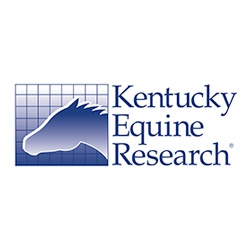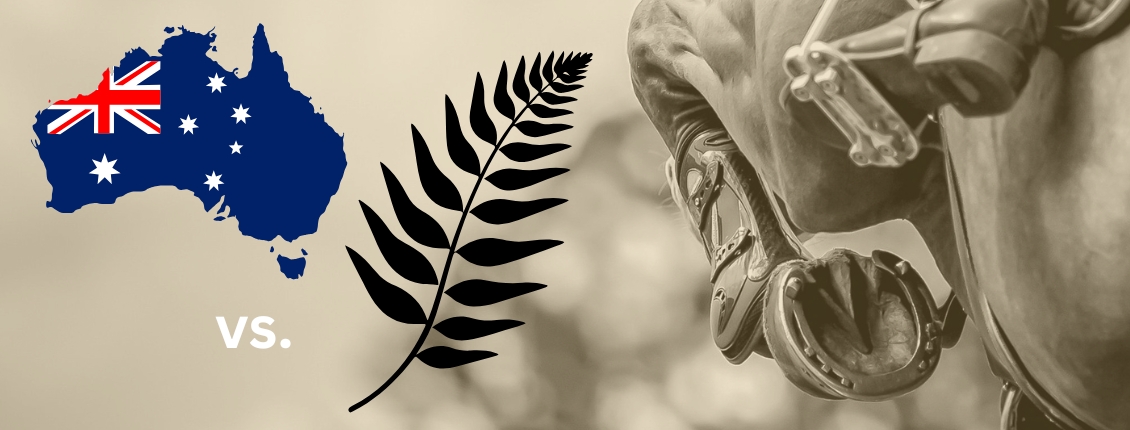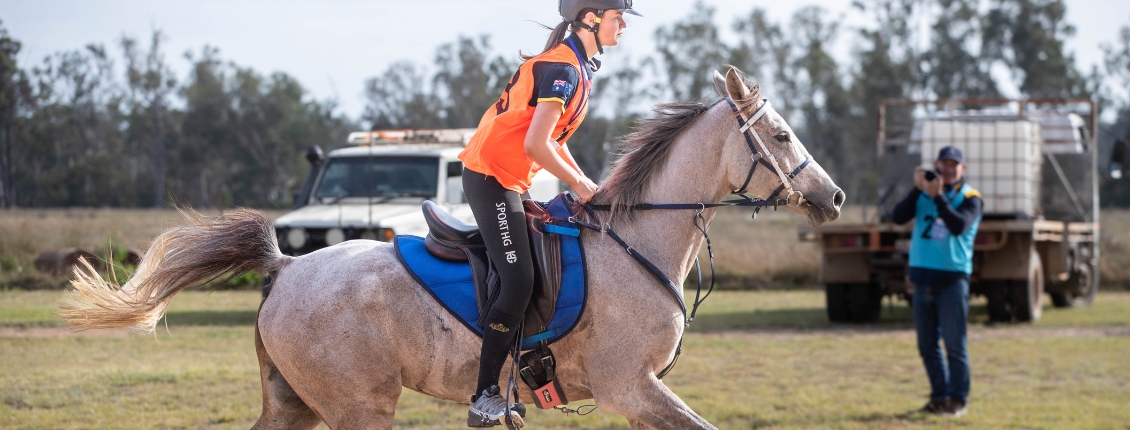
Think E for Excellent Nutrition
Vitamins are often clumped together as a single entity, and the contributions of individual ones are sometimes overlooked. In recent years, scientists have been taking a closer look at vitamin E. Though the nutrient was first discovered more than 80 years ago, the scientific community continues to find new uses for this much-heralded vitamin.
The far-reaching effects of vitamin E in equine nutrition are well known. Vitamin E plays vital roles in immune, cardiovascular, circulatory, neuromuscular, and reproductive functions.
All Vitamin E Created Equal?
The vitamin E family is extensive. Eight compounds have been identified; they are categorized as either tocopherols or tocotrienols. Fresh forages and grains consumed by horses usually include the eight compounds in sufficient quantities to maintain health; supplements, however, typically contain just one, alpha-tocopherol. Alpha-tocopherol is the most familiar of the octet because of its abundance in the horse’s body.
Natural and synthetic alpha-tocopherol are not molecularly identical. Each molecule in natural vitamin E is alike, whereas synthetic vitamin E contains a mixture of eight molecules. Only one of these is identical to the natural form. The other seven do not exist in nature and thus are purely man-made.
Natural alpha-tocopherol is extracted from a by-product of vegetable oil processing. One of the final steps of refining food- grade vegetable oil is deodorization, a process that strips the oil of undesirable flavours. The by-product, called deodorizer distillate, is collected during soy oil, corn oil, and canola oil purification. The amount of natural alpha-tocopherol harvested from distillates depends largely on the raw product.
A Superior Source
Aside from structural differences, there is a disparity in the potency of natural and synthetic alpha-tocopherol. Natural forms of alpha-tocopherol have superior bioavailability, being more highly digestible and preferentially metabolised by horses. Moreover, natural alpha-tocopherol is retained in tissues for longer periods of time, creating a reservoir that allows it to be instantly available when horses need it most, namely in times of stress or during periods of confinement.
How does a savvy shopper differentiate between natural and synthetic alpha-tocopherol when looking at the labels of nutritional supplements?
Natural alpha-tocopherol is designated by a d (d-alpha-tocopherol) on labels, and synthetic is designated by a dl (dl-alpha-tocopherol). In some instances, a product may not have a designation. If this is the case, assume that the alpha-tocopherol therein is synthetic. Because natural alpha-tocopherol is more expensive than synthetic, manufacturers will usually tout the inclusion of natural alpha-tocopherol on the packaging.
If natural alpha-tocopherol is superior to synthetic, why would manufacturers bother with the latter? Supply and demand dictate the production of natural alpha-tocopherol; there is only so much deodorizer distillate from which to extract the product. No such constraints surround synthetic alpha-tocopherol production.
Water-Soluble Is Best
Vitamin E supplementation is of little value if the nutrient is not transferred efficiently from the gastrointestinal tract to the target organs. Most vitamin E supplements are powders or granules that are top-dressed onto grain meals. When issued in this way, the gastrointestinal tract must first break down the vitamin E before it can be absorbed and carried by the bloodstream to its final destination. Absorption can be accelerated if a water-soluble product is used.
For What Horses?
Because of vitamin E’s influence on nearly all body processes, horses of all ages can benefit from supplementation, particularly if they do not have regular access to green pasture.
Horses at Maintenance
Vitamin E supplementation is essential for horses that are not allowed to graze. The vitamin E content of dried forages such as hay is severely diminished, with forages often losing 75% or more of their vitamin content upon harvesting and storage. Therefore, supplementation with vitamin E is most crucial during the winter when horses are fed diets almost exclusively composed of preserved forages. Inadequate fortification of textured feeds or the feeding of straight grains (oats, for example) may also contribute to vitamin E deprivation. Supplementation may be indicated year-round for racehorses and performance horses confined to stables.
Performance Horses
Vitamin E is an essential component to body-wide antioxidant defences, with one of its most important duties being cell membrane maintenance. Cell membranes are composed largely of unsaturated lipids and are therefore vulnerable to assault by free radicals, compounds that can irreparably damage cell membranes.
As athletic effort increases, free radical production flourishes and natural stores of antioxidants have difficulty providing sufficient protection against the flood of free radicals generated. Supplementation is therefore necessary to help ward off the ill effects of mass-produced free radicals associated with intense exercise. Horses with an inadequate reserve of vitamin E may experience muscle soreness or stiffness during an exercise bout and prolonged recovery following strenuous work.
Breeding Horses
Recent research has lauded the use of vitamin E on breeding farms. Mares supplemented with vitamin E have shown increased passive transfer of antibodies to foals, which ensures the strength of the neonatal immune system. Failure of passive transfer leaves foals susceptible to septicemia and bacterial infections. In a study conducted at the University of Connecticut, researchers found that mares supplemented with vitamin E had higher antibody concentrations in blood and colostrum than control mares. The concentrations of foals reflected those of their dams, with foals from supplemented mares having increased levels of antibodies.
There is also increasing evidence that vitamin E supplementation may increase fertility in mares. Due to modern management practices, including winter breeding dates, mares may not be receiving adequate vitamin E nutrition through rations composed solely of hay and grain. Supplementation will increase circulating levels of vitamin E and may positively affect fertility, especially in mares with reduced uterine defence mechanisms. Pregnant mares with a history of placental dysfunction may also benefit from extra vitamin E in the last two to four weeks of pregnancy. This supplementation can reduce the potential for hypoxic damage to the newborn foal. Foals suffering hypoxic damage, such as dummy foals, are also candidates for high doses of vitamin E.
Stallions are often given supplements in the hope that they will boost fertility. Stallions suffering sperm motility problems may benefit from supplementation with vitamin E or selenium. Higher blood levels of antioxidants may boost the survival of progressively motile sperm.
Nano E- Unsurpassed Vitamin E Nutrition
Kentucky Equine Research has propelled vitamin E technology into the millennium with Nano E, a revolutionary liquid vitamin E (d-alpha-tocopherol) supplement. Liposome encapsulation and nanodispersion ensures rapid and superior bioavailability for all horses. Because the product is absorbed immediately, the vitamin E in Nano E is dispersed into the blood and to outlying tissues more readily. Nano E provides 1000 IU of vitamin E per 4 millilitres. Under normal circumstances, horses require 500-1000 IU of vitamin E daily. Horses that are stressed, such as those in intense work or in rehabilitation from illness, may require more liberal doses of vitamin E. Nano E can deliver megadoses of vitamin E more effectively than powders and other supplements, and has been shown to boost blood levels within four days of use.
For more information on feeding vitamin E to your horses contact Kentucky Equine Research 1800 772 198









